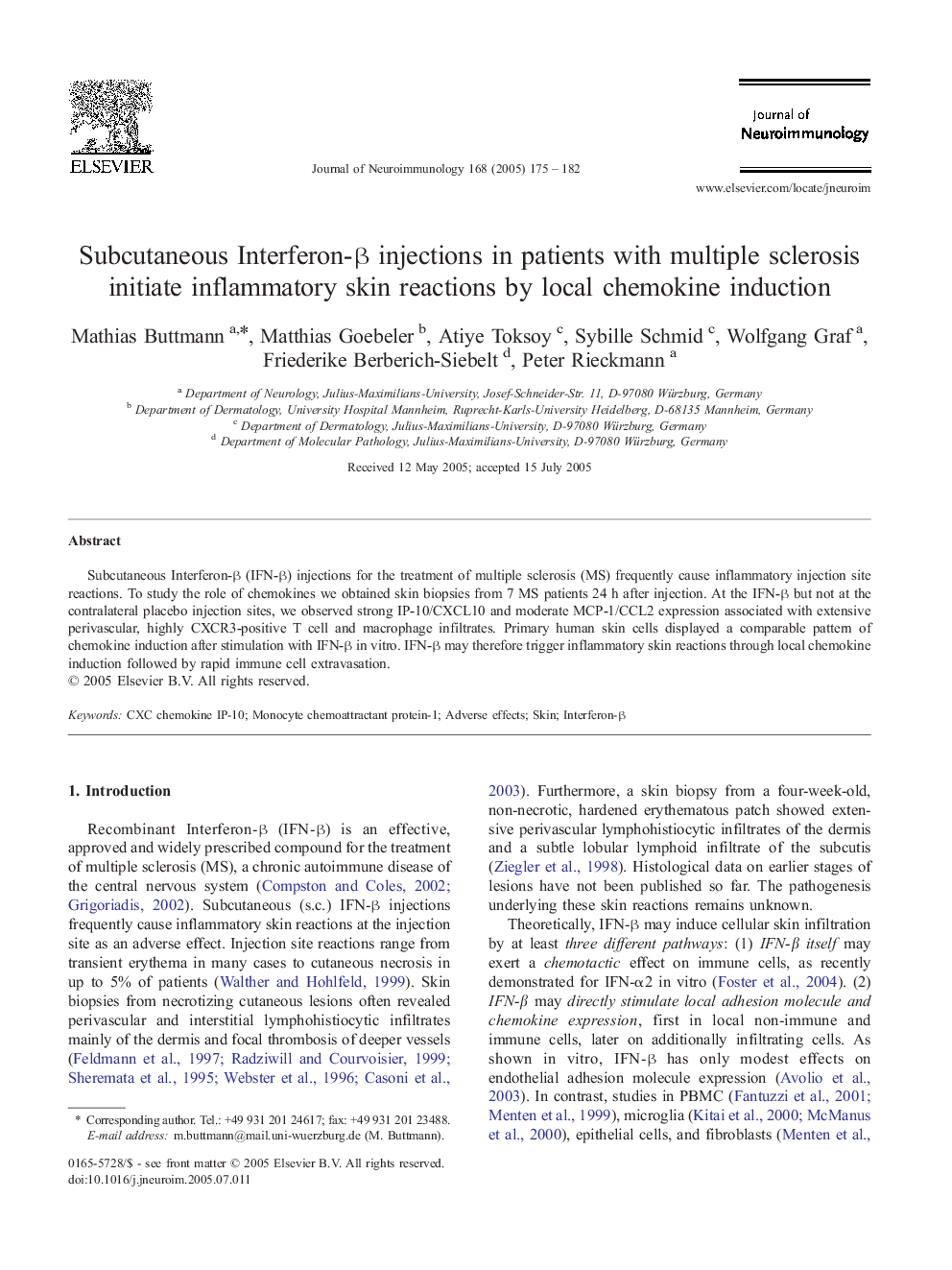| Article ID | Journal | Published Year | Pages | File Type |
|---|---|---|---|---|
| 9194526 | Journal of Neuroimmunology | 2005 | 8 Pages |
Abstract
Subcutaneous Interferon-β (IFN-β) injections for the treatment of multiple sclerosis (MS) frequently cause inflammatory injection site reactions. To study the role of chemokines we obtained skin biopsies from 7 MS patients 24 h after injection. At the IFN-β but not at the contralateral placebo injection sites, we observed strong IP-10/CXCL10 and moderate MCP-1/CCL2 expression associated with extensive perivascular, highly CXCR3-positive T cell and macrophage infiltrates. Primary human skin cells displayed a comparable pattern of chemokine induction after stimulation with IFN-β in vitro. IFN-β may therefore trigger inflammatory skin reactions through local chemokine induction followed by rapid immune cell extravasation.
Related Topics
Life Sciences
Immunology and Microbiology
Immunology
Authors
Mathias Buttmann, Matthias Goebeler, Atiye Toksoy, Sybille Schmid, Wolfgang Graf, Friederike Berberich-Siebelt, Peter Rieckmann,
